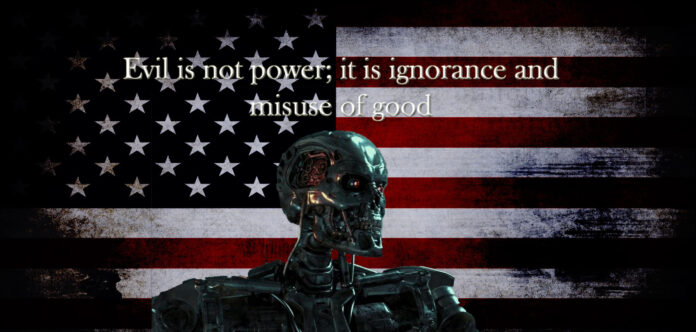At 21, I’ve had a lot of jobs. In-N-Out Burger, Trader Joe’s, selling chocolate milk at a Farmers Market and a handful of other gigs with local Mom & Pops stores. Working while in college can be difficult due to demands on our time, but I feel lucky about the fact that I’ve had so many jobs at my age. I’ve watched the struggles my parents faced after being separately fired due to lack of skill, support and resources. I’ve experienced the emotional and psychological toll this has taken on our family and seen firsthand the value of a quality education in securing future economic stability.
But what does that even mean, “future economic security?” The world is changing at a rate that is becoming increasingly difficult to track. As a result, the way we think about job security in a social and political context is rapidly changing. We’ve begun to seriously consider the application of intelligent machines that can perform tasks similarly to humans. Understandably, this both excites and concerns some people who don’t fully understand how these intelligent machines function or what their social and economical value is. In a recent article featured on NPR’s “All Tech Considered,” author and entrepreneur Martin Ford discusses the increasing presence of automation in today’s job market. Ford specifically cites the fact that robots are starting to occupy the social stations previously held by what John Lennon famously termed the “working class hero.” In other words, the people most at-risk of suffering from smarter technologies are the people whose limited educational backgrounds make them most susceptible to replacement. What’s more, Ford argues that it’s not just the world’s food service workers who should be concerned, but individuals with particularly expert knowledge are also susceptible to competition with intelligent machines.
The fact that computers are getting smarter is compelling. First and foremost, because it seems the predictions of popular science fiction are gradually becoming a reality. For example, a guiding theory in the study of nanotechnology is the idea that tiny, microscopic robots will eventually succeed in actively regenerating physical ailments, which will ultimately lead to massive changes within the medical community. At the same time however, the sheer complexity of the human brain proves a daunting goal for technology to supersede. If computers are to eventually replace blue and white collar workers alike, as noted by Ford, what will become of the jobless as a result? In a world fueled by wealth, status, money and power, what can we, as globally conscious 21st century citizens, do to help prevent massive layoffs and the threat they pose to economic health? If and when computers eventually outsmart us, what social, political and economic factors will be most affected? These are just a few questions I’m curiously exploring as I look for useful answers.
What do you predict the future of America’s job market to look like? Email wmdavis@ucdavis.edu to tell her what you think!
Graphic by Sandra Bae.




